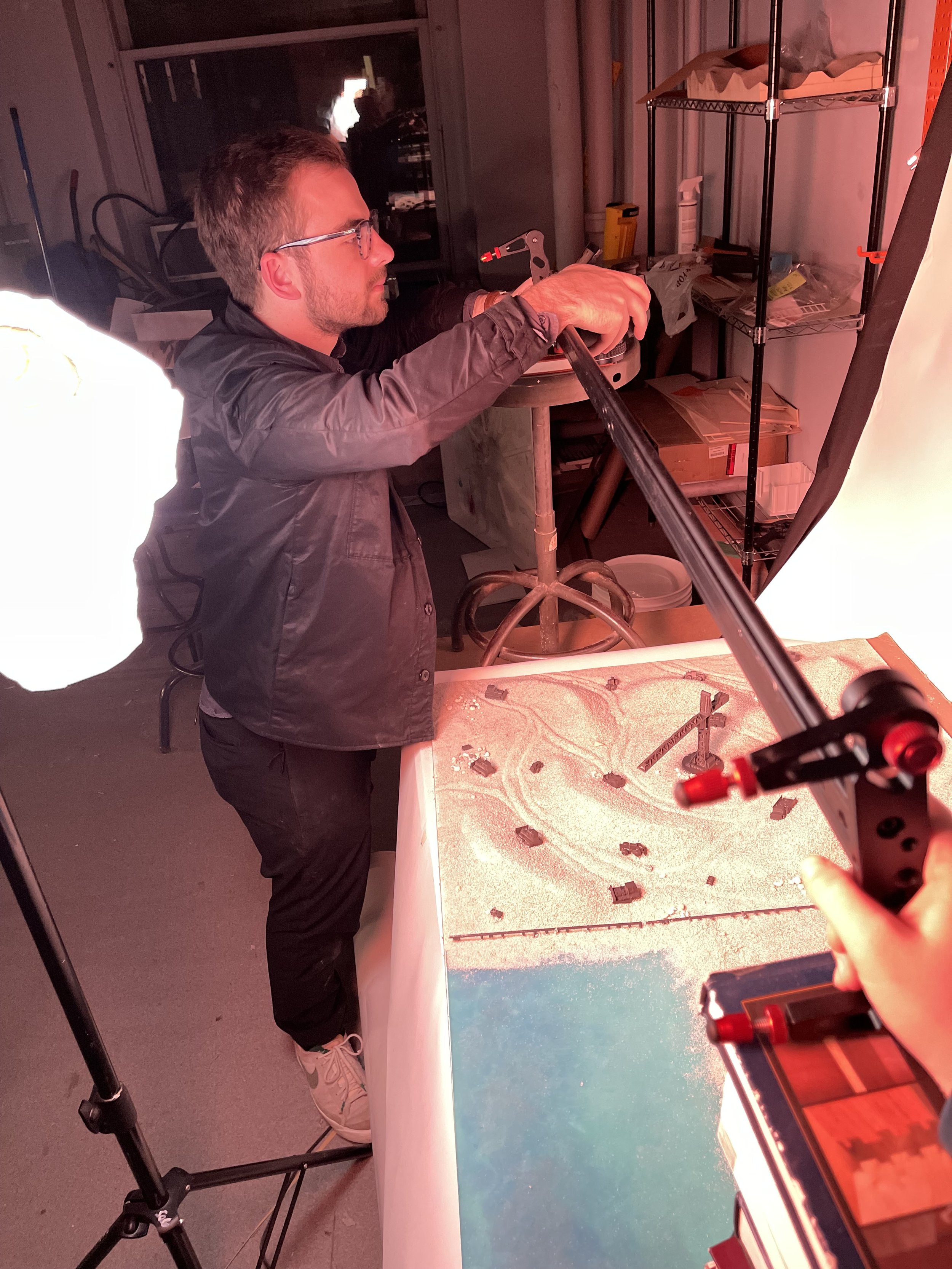PERFIDY
Spring 2022, Columbia University GSAPP
Critics: Josh Jordan
Collaborators: Ethan Davis, Blake Kem, & Carley Pasqualotto
The dynamics of our environment have ushered in a scarcity of wood due to ecological shifts, rendering petroproducts impractical. This transformation aligns with a revolutionary surge in accessible and economical energy, creating an unprecedented global demand for concrete and cement-based products. Consequently, SAND has emerged as Earth’s most invaluable commodity. Its exclusivity stems from distinct chemical attributes, limiting its origin to desert expanses, beaches, and naturally occurring geological formations. In the lives of Earth’s inhabitants, a profound shift has occurred, revolving around the acquisition, preservation, and exchange of sand—a practice now emblematic of status and affluence. However, amid this paradigm, there exists a faction that opposes the trend, actively striving to cultivate a sand-free environment and minimize its impact. The dichotomy between those embracing sand as a valuable resource and those working towards its reduction underscores the intricate interplay between natural resource utilization, societal values, and environmental preservation in our evolving world.







